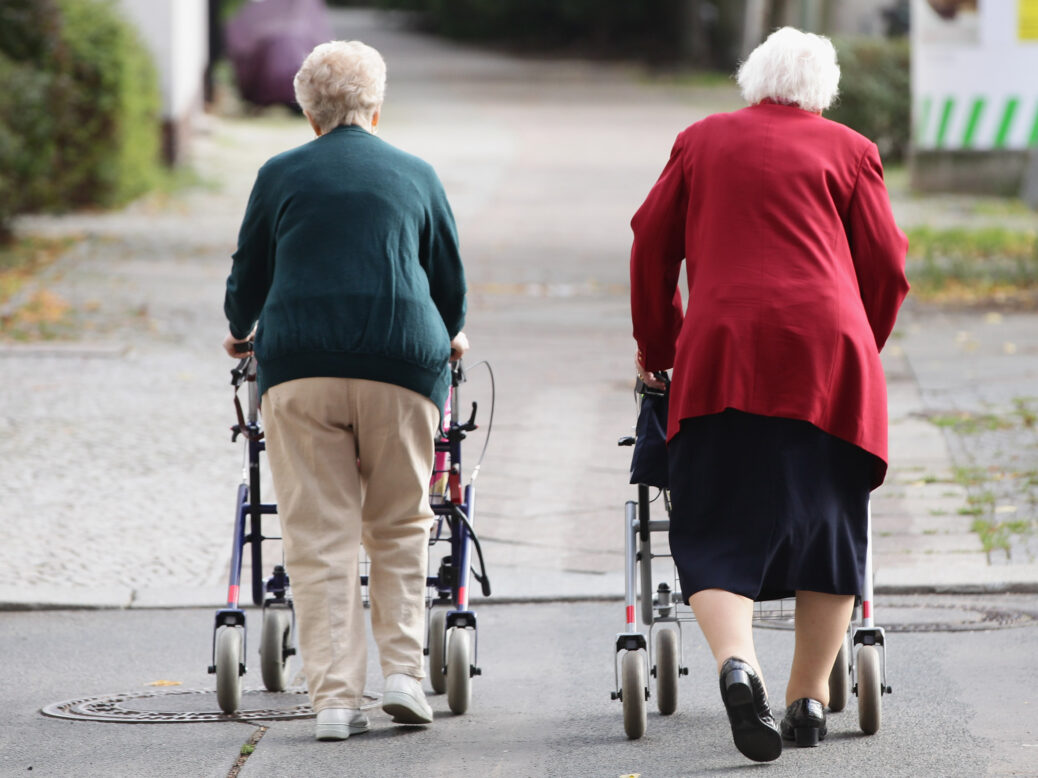
When we talk about how Brexit will affect us the focus is often on young people. This is understandable: young people are the ones who will be affected by Brexit for decades to come, and the vast majority of them voted to remain in 2016. They are the ones who will be paying for something they didn’t want in the first place.
But just because young people are the ones who will arguably be the most unfairly hurt by Brexit, that doesn’t mean they are the only ones. In fact, contrary to the popular misconception that pensioners have never been so well off, the majority of our vulnerable people are in fact the over-65s. Specifically, women over the age of 65.
This year the trade union Prospect revealed that women currently receive 39.5 per cent less than men in state pension payments. According to Age UK, 23 per cent of single elderly women are unable to meet their everyday living costs. That’s almost 600,000 women. And this poverty is built into the system.
Pension schemes are designed to favour those who are able to work full time for most of their lives. And that just doesn’t reflect the reality of women’s lives. Women still bear the vast majority of unpaid care work in the UK, from caring for children to bring for elderly relatives. This inevitably affects their ability to work full-time, or to develop their careers as easily as men – and this in turn affects their pension payouts, especially since many women have to work multiple jobs to fit work around their caring schedule and so don’t earn enough from a single job to qualify for auto-enrolment into the state pension scheme. (You can’t combine earnings from several jobs to qualify.)
When it comes to private pension schemes, the situation for today’s workers looks even worse. For a start, women are much less likely to invest in Defined Contribution (private) pension schemes. This has been attributed to the fact they are marketed by and for men, as well as women’s tendency to be more risk averse.
The Women’s Budget Group reported in 2018 that, between the years 2012 and 2014, men’s personal pension accumulations were almost 50 per cent more than women’s, with men having on average £24,000 in personal pension wealth and women just £12,400. This makes single women particularly vulnerable to the rising cost of living we are already experiencing following the 2016 referendum.
The Treasury and the Bank of England have confirmed that the UK economy will undoubtedly suffer after Brexit: plummeting confidence and investment, stagnated growth, a weakened pound and falling interest rates will stagnate the amount of money available for present and future pensions. Workplace pension pots simply will not be able to keep up rising living costs if the UK leaves the EU. A weak pound and falling interest rates mean that insurers’ pay-outs could also devalue for future retirees.
The gap could also get bigger due to the pressure Brexit will put on the care sector. Evidence shows that Britain could lose 400,000 care workers by 2026 as EU-nationals leave the UK. Combined with the devastating impact Brexit will have on NHS funding, we will see many more vulnerable people not being supported by the state and needing care from their friends and family. It’s likely that women will be the ones to take up this burden meaning even more breaks from employment and even fewer private pension contributions.
Our exit from the European Union will worsen the status of women and it will worsen the status of pensioners – meaning that women pensioners face a double threat from this “blokes’ Brexit”. Women in their twenties and thirties today are rightly worried about how Brexit will impact their rights, services and incomes. They’re likely not thinking about what it means for their retirement – and because so little of the Brexit debate has focused on how women will be affected, few older women may have thought about it either.
They shouldn’t have to. And they don’t have to. Increasing inequality for some of the countries’ most vulnerable people is not a done deal. The impact it will have on elderly women is yet another reason why women should demand a final say on Brexit.
It’s time for our government to go back to the people. It’s time for a People’s Vote.



